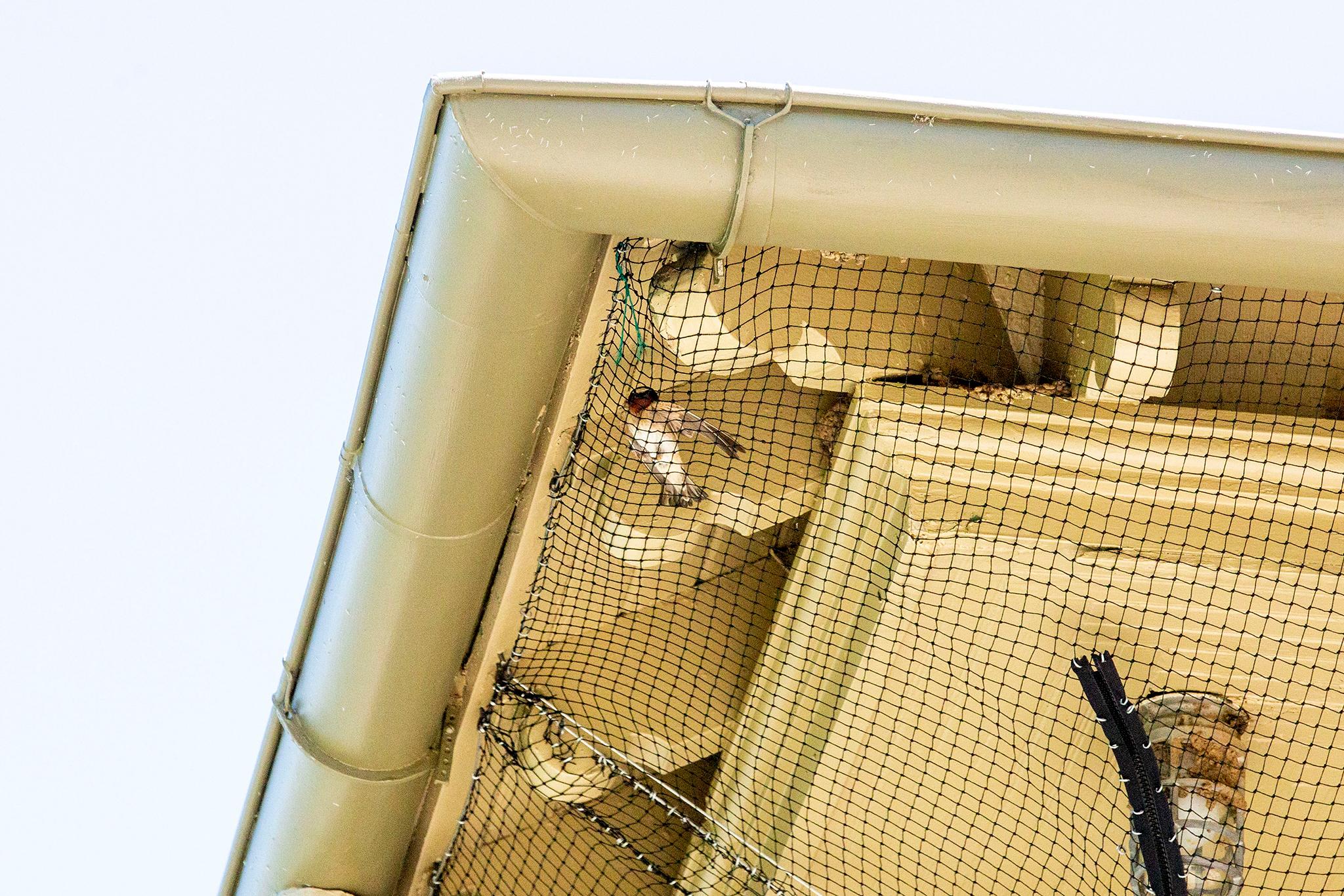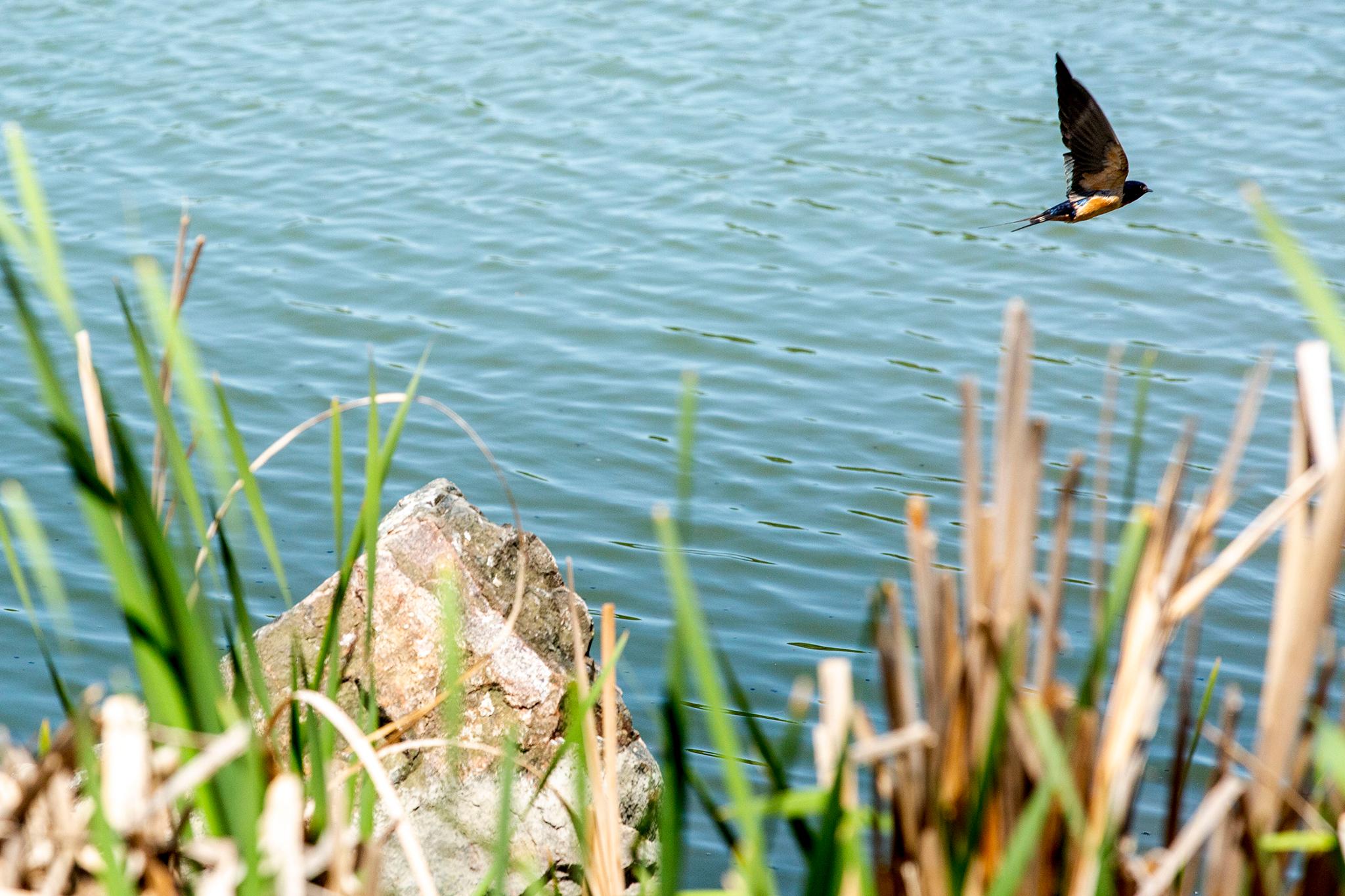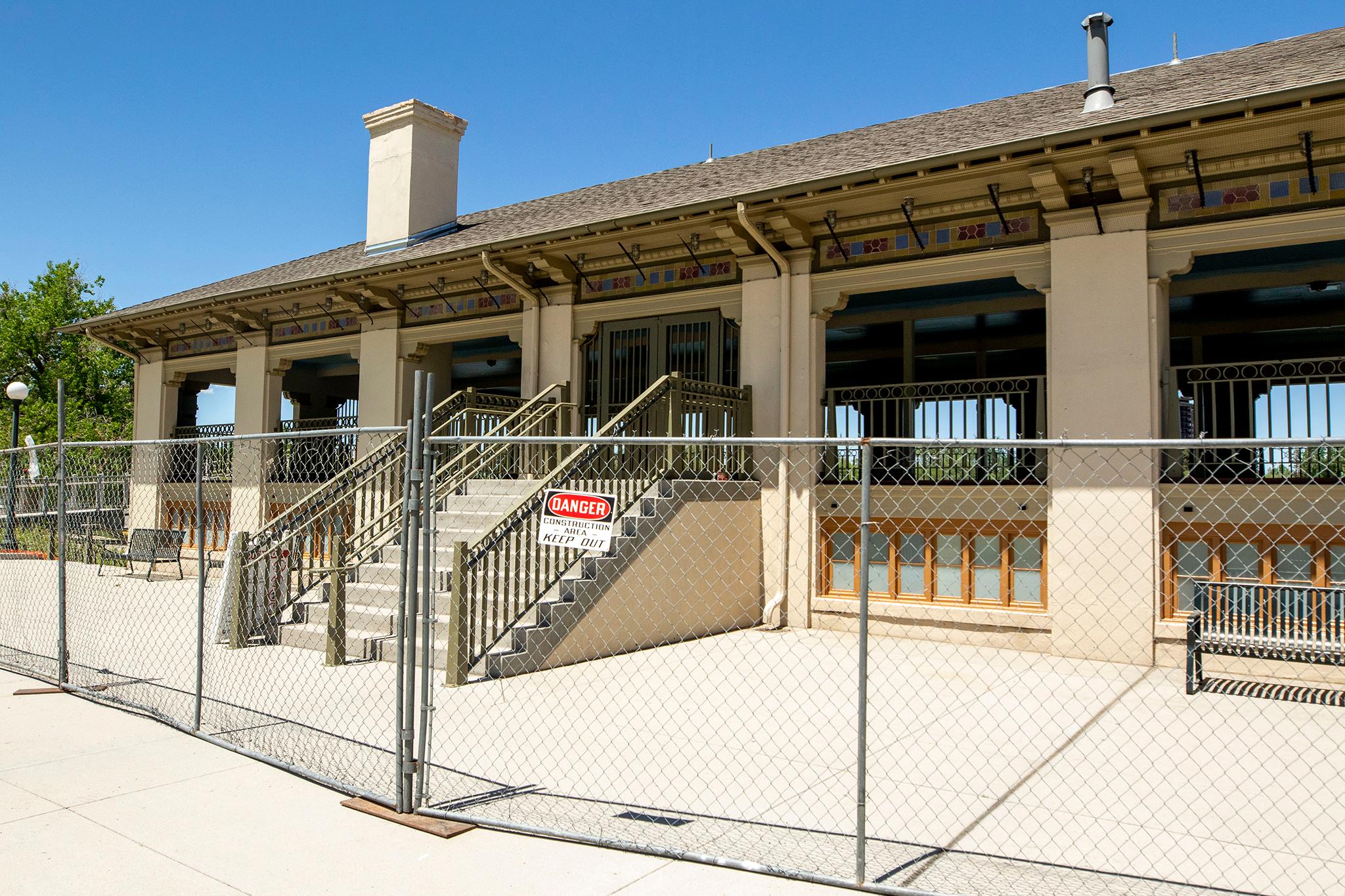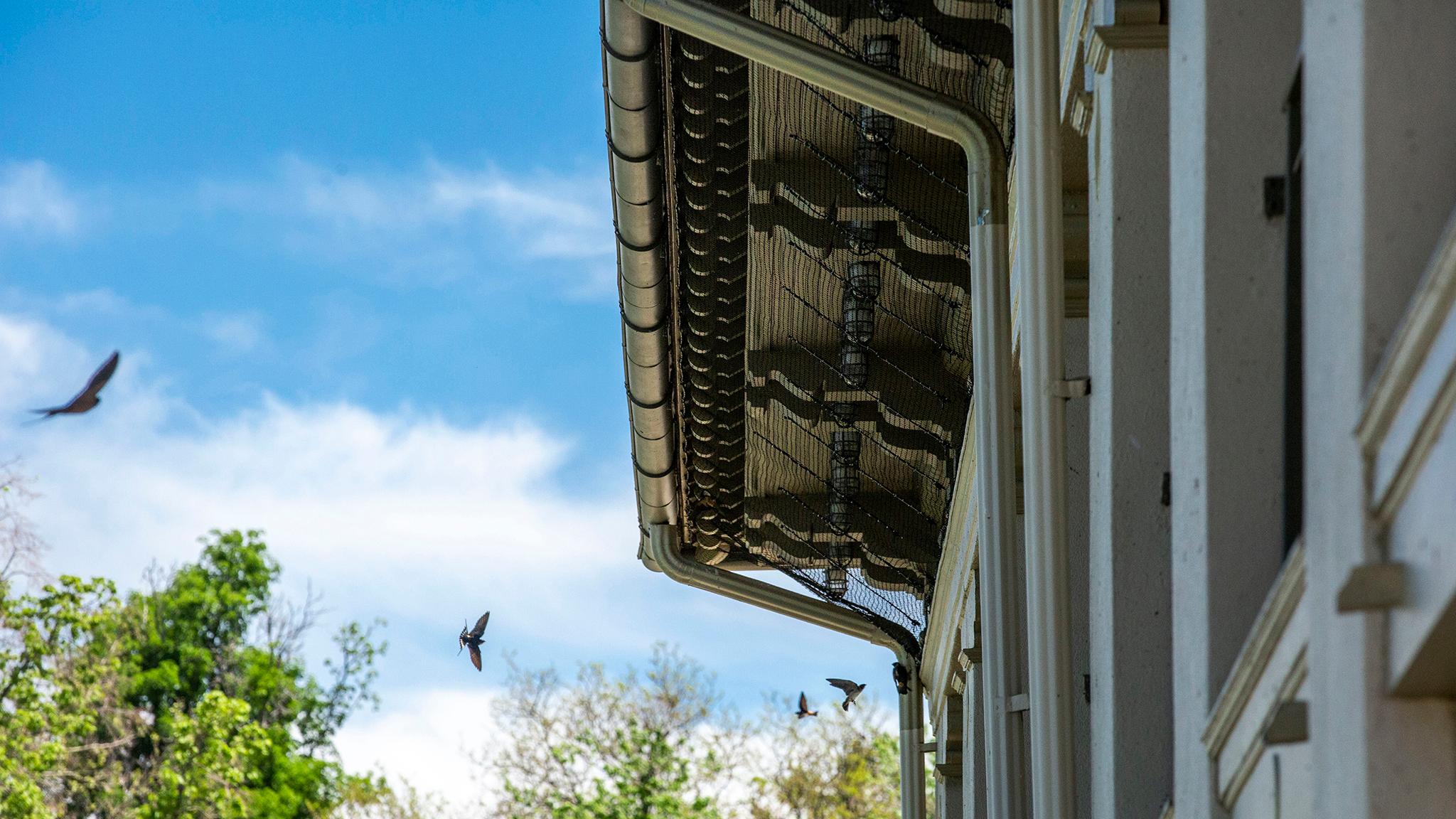Denverite reader Catherine Wiersma asked: "It looks like the city installed nets where the swallows normally nest at the Wash Park boathouse - I'm devastated! I love the swallows!" So we investigated.
Beneath the boathouse's eaves, there are indeed nets blocking birds from reaching the crevice where they'd like to build their nests. The barrier hasn't kept them from trying, though. We saw tons of little chittering birds flying up to the barrier, sometimes holding on for a minute, before jumping ship and heading back toward Smith Lake. One even made it past the netting, though it was unclear if it was happy once it succeeded.
Scott Gilmore, deputy manager of Denver Parks and Recreation, said the nets are a measure to preserve the historic building.
Each year, the critters build new homes out of mud. Gilmore, a wildlife biologist by training, said the boathouse is good spot because they can easily cruise over the water to eat bugs and then head back to their small apartments under the roof.
He said Parks and Rec has tried to wash them off in the winter after the nests are abandoned but that "has potential to damage the historic structure."


So this is the first time the city has tried to curb this potential damage through preventative measures. Gilmore said regulations allow for this kind of work only before nesting begins. He added it's humane, since they're not destroying long-used habitats: "It's not like we're taking an eagle's nest."
Gilmore expects the swallows will simply stake out other places nearby. Now, he said, people can "actually go looking around the park." There's more mystery now that visitors won't easily know where to find them.
But he said his department has gotten a lot of questions about this already. He understands why people are curious, if not concerned.
"People love to watch them," he said. "I love to watch them, too."

Gilmore expects their new housing restrictions will make things easier on staff and people who want to use the boathouse for events - whenever events there are allowed again.
"They do poop all over that patio where people gather. They poop all the time," he said. "It is a wildlife-human conflict."











